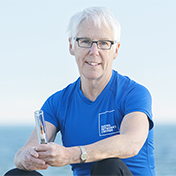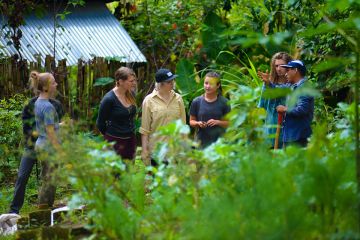Whose economy is it, anyway?
- Robie Liscomb
Dr. Ana Maria Peredo, director of the UVic-based BC Institute for Co-operative Studies (BCICS), looks beyond the recent bad economic news and sees a precious opportunity to do things differently.
“Maybe this is going to allow us to think about the way we put our economy together,” she explains. “So much of the efforts of governments everywhere seems to be aimed at remaking the economy in the way it was—rebuilding the machine that got us into this mess. Maybe we can rethink our economic life and bring it closer to what we value.”
So what are the options? A wide range of co-operative economy alternatives was explored at a March 7 forum entitled “Remaking the Economy through People’s Eyes,” presented by BCICS and the BC Community Economic Development Network.
It brought together leaders in the field of social economy from UVic, BC and England and more than 200 participants to discuss such topics as co-operatives, community-based health promotion, food sovereignty, ecological economics, participatory economics, Indigenous economic development and social enterprise. Keynote speakers James Tully (UVic), Mark Roseland (SFU), Helen Haugh (University of Cambridge) and Doug Wright (The Co-operators), challenged the forum with a variety of ideas as to the ways in which economies have been made, how they can be made, and how they are being re-made, in Canada and abroad.
Practitioners working at the community level led workshops on subjects ranging from ecological economics to First Nations and the economy, all aimed at harnessing the economy to community values.
“There is a lot going on at the grassroots level, where people make the economy differently,” says Peredo. “There are barter systems, community investment funds, co-ops, diverse models of community-based enterprise, micro-credit loan initiatives, local currencies—a whole range of what we call ‘social enterprises.’ These economies are not built on a model of individuals competing in an open market to increase their paper wealth. They are built, instead, on the visions of persons in the community creating real value; they are based on social innovation and on the social assets, investments and goodwill that are the strength of communities.”
“With the right framework of support, we have the makings of a strong co-operative economy right here in BC,” Peredo says.
The forum generated momentum, says Peredo, for those working in the co-operative economy—and that extends beyond co-operatives—to collaborate among themselves and with the public sector to create structures to facilitate and support the growth of co-operative community development in BC.
And the Institute for Co-operative Studies is well positioned to serve as a catalyst in this effort. The final presentation in its Ideas for a Grassroots Economy lecture series will feature Dr. Rod Dobell, professor emeritus in public policy, speaking on “People, Place and Participation: Community-based Governance in Coastal BC” on April 23 from 4–5 p.m. in Clearihue C113.
In this story
Keywords: economy



